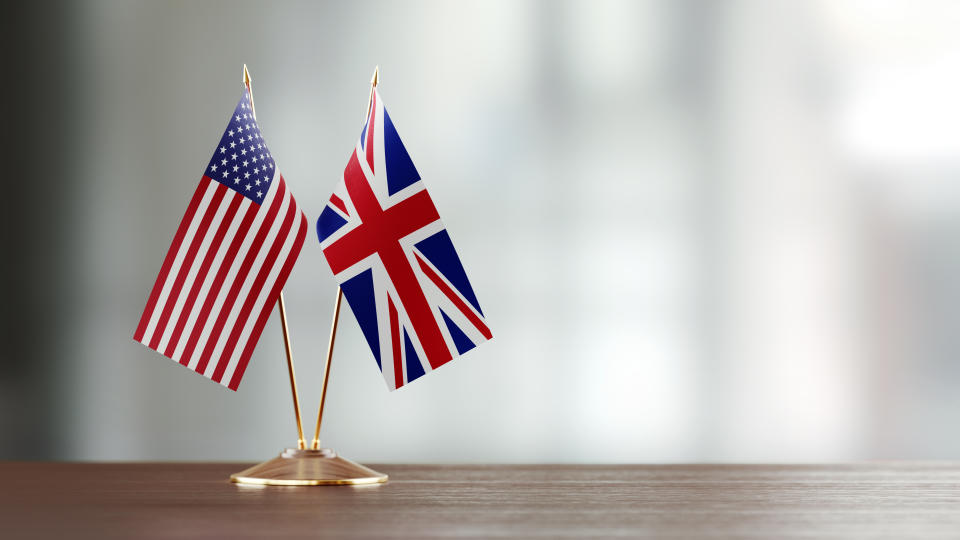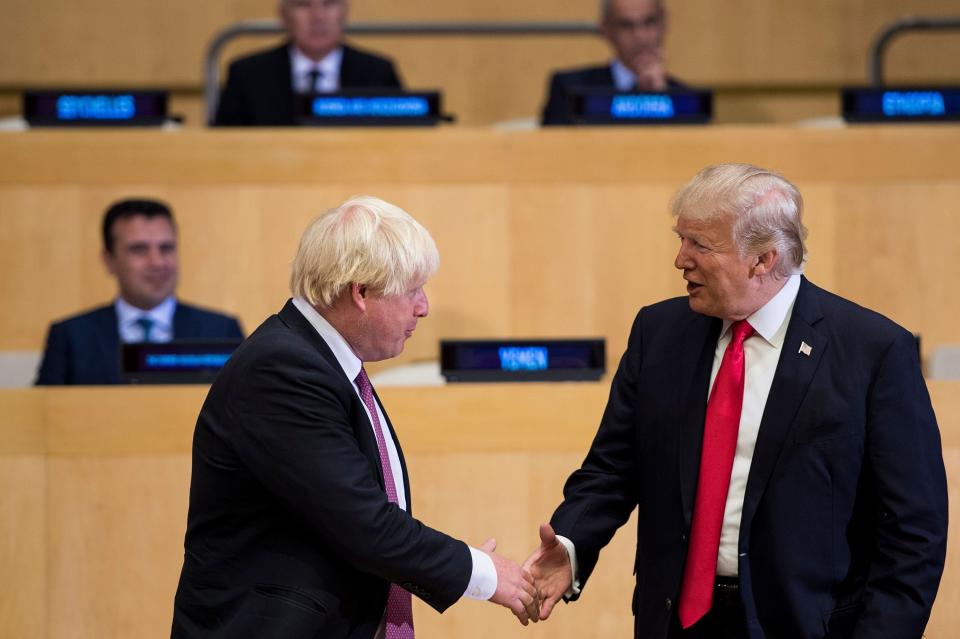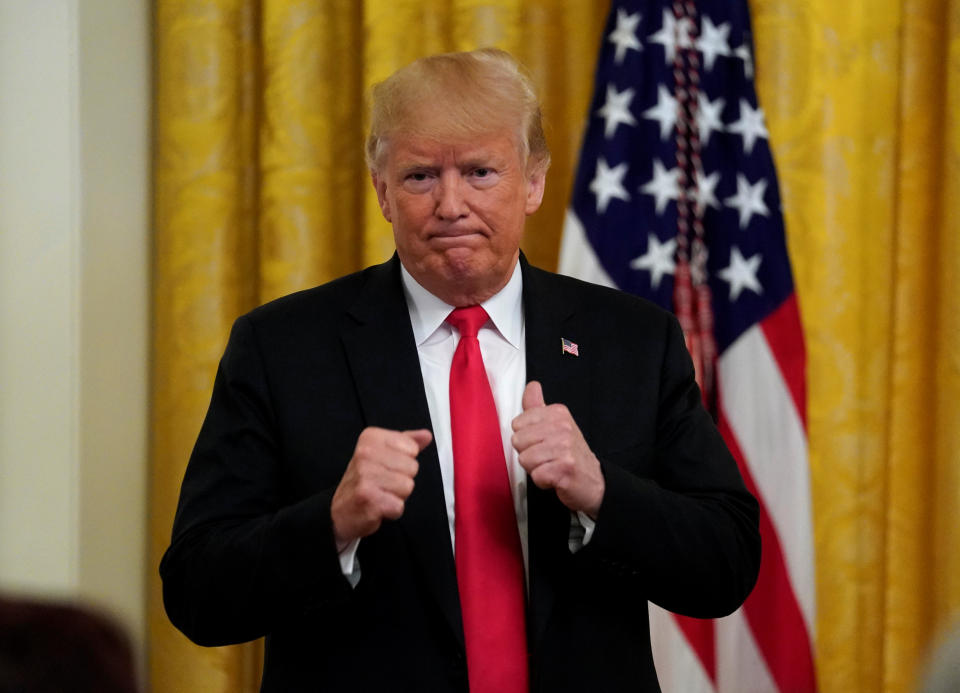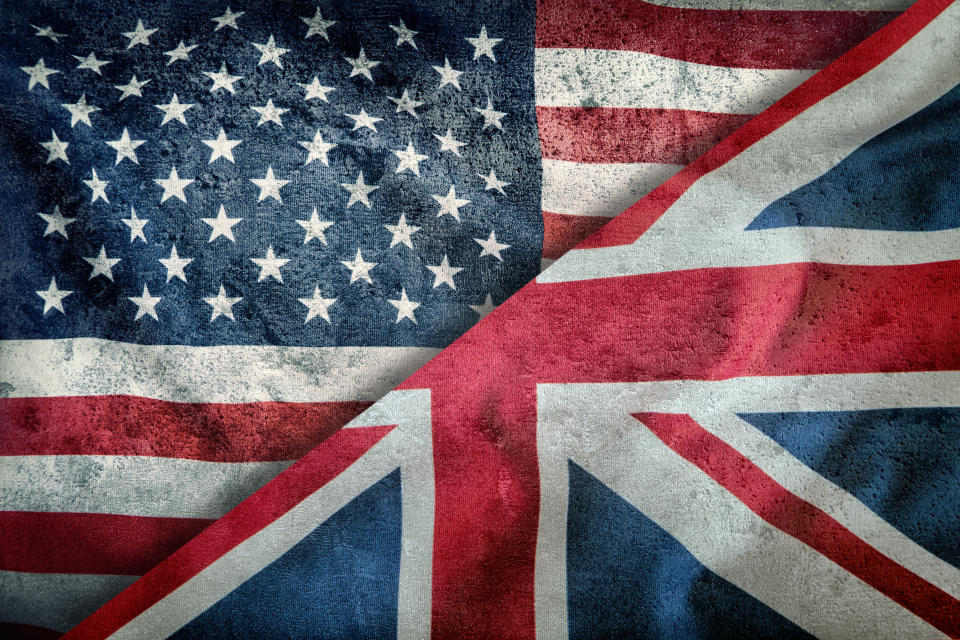The US-UK post-Brexit trade deal is too good to be true

Over the last week, current and former advisers in the US government have tantalisingly dangled the prospect that a US-UK trade deal is already in the works and that Britain is in a strong position to negotiate.
It’s music to the ears for Remainers and Brexiteers alike.
After all, Britain will be leaving the European Union by 31 October this year, and with the prospect of a no-deal Brexit becoming more and more likely — because there’s no wriggle room or time to negotiate an agreement with the bloc that will satisfy both hard-line Brexiteer Boris Johnson’s government or the EU. Any bilateral deals that will help put the UK economy back in a healthy place, will therefore be welcomed.
But is it too good to be true?
What the US says
The former top trade adviser to US President Donald Trump Stephen Vaughn said recently that Britain has "enormous leverage" in a potential US-UK trade deal and that the Trump administration is "ready to go." He detailed that the current US trade representative Robert Lighthizer has already made preparations for a post-Brexit deal among the nations.
"No one would say, 'Canada has to join the US in a union or Canada will get steamrolled by the US'," said Vaughn. "You have an enormous amount of leverage, and we'll see how you use it.”
Meanwhile, Trump's national security adviser John Bolton said in an interview that Britain was not only the "first in line" for a trade deal with the US but that a bilateral deal or "series of agreements" could be carved out "very quickly, very straight-forwardly." He even added that the deal could be done on a "sector-by-sector" basis.
Will a deal happen quickly? No

There’s a few glaring issues with the reality of a US-UK trade deal happening anytime soon — even if US representatives say that it could happen “quickly.”
Even former top trade adviser Vaughn said that it could take years.
On top of that, the US Congress struggles to pass any trade deals. Looking at Lighthizer’s recent track record, it shows that a US-UK trade deal is highly unlikely to pass anytime soon.
Any trade deal isn’t as straightforward as advisers are purporting.
For example, one of the most recent and successful trade deals — the EU-Canada free trade deal (CETA) — took seven years to put together.
In January 2017, Jason Langrish, the man who helped “give birth” to that deal warned that “the next generation of bilateral agreements, of which CETA is the template, is complex.”
“They reflect the realities of modern commerce and go beyond trade, touching upon behind-the-border issues such as standards, regulation and opening government contracts to competitive bidding,” added Langrish.
This complexity means that the deals take years to negotiate and conclude. In our amped-up media environment, there are special interests making noise at each step in the process, ensuring that trade and investment deals are a marathon, not a sprint.”
Will a ‘sector-by-sector’ trade deal work? Highly unlikely

The element that Bolton floated that a deal could be done on a "sector-by-sector" basis is also not as palatable as it first seems.
In fact, Centre for European Reform’s trade expert Sam Lowe pointed out that "the reason for this is that the EU actually offered this approach to the US as a means of getting away from the trade war by saying 'let’s find a solution'.”
"The EU said 'let’s just negotiate on industrial goods, we won't do agriculture' and the US said no.
“The reason the US said no is because its aggressive ask when it negotiates with new partners is agriculture — that's what it cares about, so I'm slightly sceptical that Congress will get behind an approach that says 'we just won't talk about the things that you care about most to begin with'."
Does the UK have ‘enormous leverage?’ It depends

The state of Britain’s economy post-Brexit and during the Brexit transition period will realistically determine the leverage the UK has.
The health of the economy will be the driving force between whether the UK goes into talks begging for a deal or looking for one that is on more even ground. For example, who needs the most out of the deal?
Currently, the EU is Britain’s largest trading partner. In 2018, UK exports to the EU were £289bn — worth 46% of all UK exports. Imports from the EU also account for 54% of all UK imports. In comparison, the US accounts for 13.3% of total UK exports. The UK is also the US’ seventh largest goods trading partner.
Barack Obama’s former trade secretary Larry Summers has also recently cast doubt upon a potential US-UK trade deal post-Brexit.
“I don’t see that Britain could gain very much [from a trade deal with the US], the most thorough evaluation of the issue was done by scholars at my centre at Harvard,” said Summers.
“Their study concluded that there really wasn’t that much in it for Britain, certainly relative to what Britain might lose [with the EU]. I find it unlikely there would be a substantial increase in British-US trade, and close to inconceivable that there would be an increase nearly so large to make up with what Britain is losing in terms of reduced access to the EU.”
READ MORE: Recession fears as UK economy unexpectedly shrinks
But things will drastically change for the UK once Brexit happens — whether with or without a deal.
Some estimates say that a hard/no-deal Brexit would cost public finances £80bn while some say it will lead to a £100bn blow to the UK economy.
Marjorie Chorlins, the US Chamber of Commerce’s head of European affairs said in a statement that the country’s investment in Britain was made “so companies could seamlessly access the much larger EU single market” and warned that it’s “very hard to know” what future relations, let alone what a trade deal, would look like.
Nobel prize-winning economist Joseph Stiglitz also warned that Brexit uncertainty will be damaging for the global economy — something that the International Monetary Fund and many others have sounded the alarm on.
"That uncertainty is going to dampen investment, particularly in the UK and no matter what the outcome that uncertainty will continue for years," he said.
Because, as you've seen over the last three years, resolving the multiple issues that Brexit raises is not easy."

 Yahoo Finance
Yahoo Finance 
